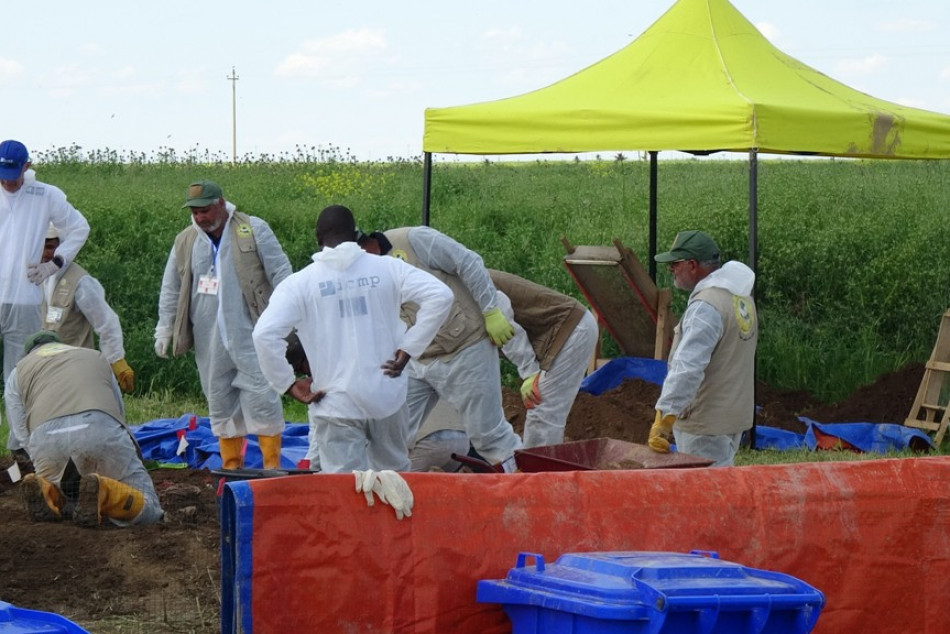The remains of 138 Ezidi victims exhumed from ten mass graves in Shingal (Sinjar)’s Kojo village have been sent to the Baghdad-based Medico-Legal Directorate for forensic analysis.
The first mass grave in the Ezidi village was unearthed on March 15, 2019 under the auspices of the Mass Graves Directorate of Iraq’s Ministry of Health and the process is underway.
Major Falah Hasan, member of the Board of Investigation and Evidence Collecting said, “Until now, ten mass graves have been exhumed in Kojo which contained the remains of 138 victims, most of them were males.”
The remains are being sent to laboratories in Baghdad with the hope of identifying the victims so that they can be returned to family members for reburial.
The exhumation began after families of the victims staged protests criticizing the delay of the process and expressing fear that the remains might be washed away due to heavy rainfall.
“The exhumation process is moving at a slow pace. There’s no doubt that the victims’ families want it to end soon but they should know this is an extremely complicated process”, said Falah Hasan.
The exhumation is conducted by the Kurdistan Regional Government (KRG)’s Board of Investigation and Evidence Collecting, the Mass Graves Directorate within the Iraqi Martyrs’ Foundation, the Medico-Legal Directorate under the Iraqi Ministry of Health and the KRG’s Ministry of Martyrs and Anfal, guided and supported by a team of forensic and legal experts from the United Nations Investigative Team to Promote Accountability for Crimes Committed by the Islamic State group.
“The mass graves unearthed so far are all located in Kojo; there are six more mass graves in the village that will be exhumed after the Eid al-Fitr holidays which need a month-long work to be completed before we start unearthing mass graves in other parts of Shingal”, Falah Hassan added.
According to statistics by the Directoate of Ezidi Affairs in the KRG’s Ministry of Endowment and Religious Affairs, a total of 80 mass graves have been found in Shingal district in addition to dozens of individual graves of victims slaughtered by IS after they overran the area in August 2014.
The figures indicate that 1,293 Ezidis were slaughtered by the group, while the fate of an estimated 3,000 Ezidis, mostly women, abducted by IS fighters remains unknown.
Shingal district, predominantly populated by the Ezidi community was controlled by IS on August 3, 2014, and was recaptured on November 13, 2015.





